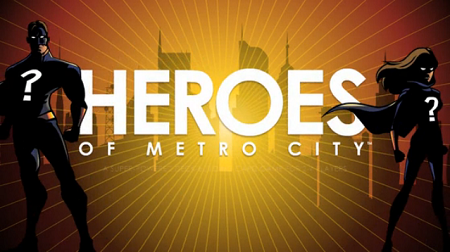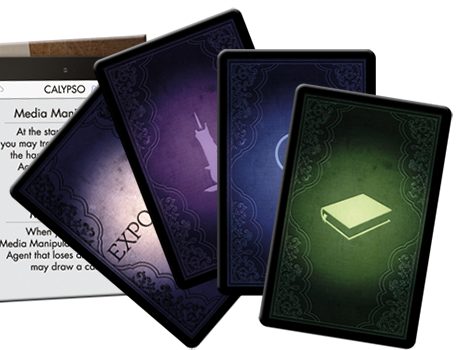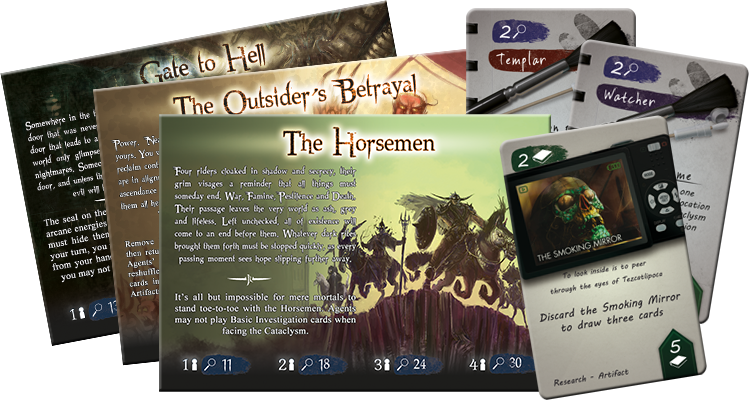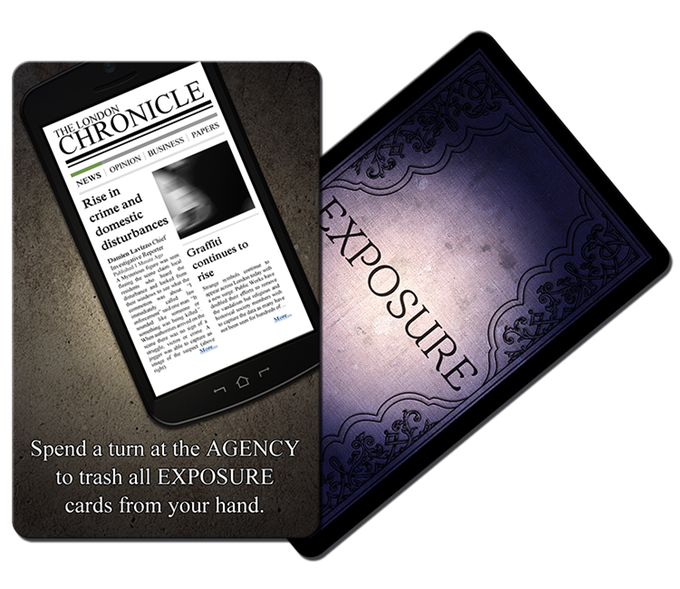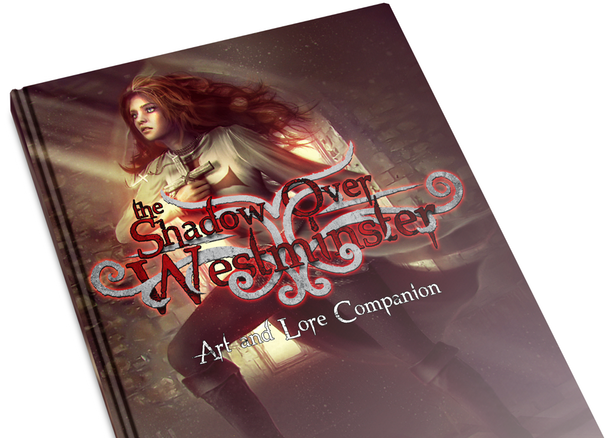As part of our February Spotlight on The Shadow Over Westminster, we strive to inform the readers of little extra tidbits surrounding the game. Games are made by people, and one of those tidbits we enjoy is learning a little bit more about the people behind them. Some designers shy away from the public stage, while others enjoy being front and center. In the case of TSOW’s game designer Robert Huss, he’s a bit busy these days with trying to save the world. At least, that’s what we think he’s been up to. You see, ol’ Robert’s been a bit hard to find of late, and we’re not quite sure why. We initially were able to chat rather openly about his work, and we we very happy to share that with you here today.
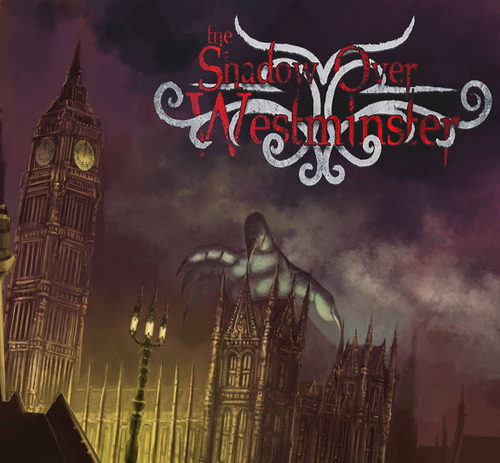 However, his subsequent messages have been sporadic, cryptic even. We’re not quite sure exactly, but we think something is afoot. Since our sanguine conversation about a seemingly benign board game, details from Robert have since not been as forthcoming. It’s entirely possible that we have stumbled onto something…bigger. Dangerous even. In fact, some of our own investigative work has led to the possibility that Robert isn’t even his real name anymore.
However, his subsequent messages have been sporadic, cryptic even. We’re not quite sure exactly, but we think something is afoot. Since our sanguine conversation about a seemingly benign board game, details from Robert have since not been as forthcoming. It’s entirely possible that we have stumbled onto something…bigger. Dangerous even. In fact, some of our own investigative work has led to the possibility that Robert isn’t even his real name anymore.
Is it a code? Is it a warning, a omen of foul deeds at work and clandestine efforts to stop them? Does this game mean he wants our help, or does he want us merely distracted while the world secretly spirals into chaos.
We simply can’t be sure. He’s never misled us before until this point, and we sure hope we’re not some pawns in a larger plot. Yet we’ve nevertheless decided to release the interview – unredacted – in the hopes that our purpose in whatever may be happening is for a greater good. And not…well…something else. Enjoy!
Round One Questions
CR: What was your Gateway Game?
This is a really difficult question for me, since I’ve been playing board games for as far back as I can remember. Thinking back to my childhood, some of the games that stick out in my mind are Fireball Island, the He-Man 3D Action board game, and three different copies of Monopoly we used to try to stack together into some super Monopoly game we never finished.
Even back then I was interested in making my own games, or changing rules to try to make games more exciting. I’m sure none of them were particularly good, but I do specifically remember making my own card game that was inspired by Magic: the Gathering and having enough fun that friends and I would spend hours battling each other and deciding what we needed to make for new cards.
CR: What was the last game you really enjoyed playing (besides TSOW)?
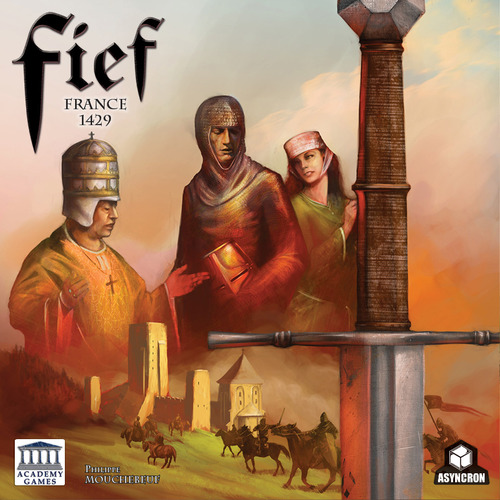 I would say I probably enjoy most of the games I play, and I almost always want to have a second go right away in order to put strategies to use that I only picked up halfway through my first play. I recently had the pleasure of trying out Fief for the first time, and although it turned into a little bit of a slog as we ran until 2 in the morning trying to decide how a couple rules should be applied in some of our apparently unorthodox situations, I am still eager to get it back on the table so that I can take another shot at controlling feudal France.
I would say I probably enjoy most of the games I play, and I almost always want to have a second go right away in order to put strategies to use that I only picked up halfway through my first play. I recently had the pleasure of trying out Fief for the first time, and although it turned into a little bit of a slog as we ran until 2 in the morning trying to decide how a couple rules should be applied in some of our apparently unorthodox situations, I am still eager to get it back on the table so that I can take another shot at controlling feudal France.
CR: How big is your game collection?
My collection isn’t tiny, but it certainly can’t compare with the collections of most of the people I play with. I have somewhere over 100 games sitting on my shelves right now. A good dozen of them are still waiting for their first play session, but those are mostly games that were either given to me or otherwise acquired as swag from various conventions I’ve attended over the last few years. I’ll get to them as soon as I have time, I swear!
The real reason I don’t have more games is because I have several friends that all have upwards of 300 games in their own collections, with a couple in the low 4 digits range. We do some rotating household gaming groups, so I can usually count on being able to play just about anything I could name without needing to buy a copy for myself. I think that’s one of the biggest benefits of a good gaming group.
CR: What is your favorite type of game to play?
I’m always up for trying something new, but my favorite games require a lot of strategy and a little bit of luck. I really like being able to plan and reason out my moves, and I love trying to sneak in a plan without other players catching on to my true intentions. I do like there to be a little bit of luck involved over the course of the game, as I otherwise feel that the more experienced player will almost always have a significant advantage. That said, my very favorite way to play is with a group of people who are all trying a game for the first time. Identifying what works and doesn’t as we go, and often laughing about how bright ideas turn out to be terrible mistakes is one of my favorite experiences in gaming whether it is tabletop, RPG, digital, or otherwise. I just love to push and test the mechanics and see what happens.
CR: How do you feel about Monopoly?
I don’t think Monopoly deserves some of the hate it gets, but I also find it really frustrating that it’s still what a lot of people picture when they think of tabletop gaming. So many people use house rules that turn it into a game that never ends, and the luck factor of the roll-and-move means that it can become a game of “keep rolling the dice until someone arbitrarily wins”. The negative aspects of the game give a lot of people a negative impression of tabletop games that keeps them from giving anything else a try. That said, I love sitting down to play a game with someone who has never strayed beyond Risk and Monopoly and hearing their reactions to some of the more modern gaming choices.
On The Shadow Over Westminster
CR: At the time of the game’s inception, the idea of a co-op deckbuilder was largely unheard of. What was the inspiration behind using such a system?
When I was first designing The Shadow Over Westminster I don’t believe there was anything yet in that area. Obviously a couple of co-op deckbuilders have been since released before I was able to get the game finalized, but I’m really rather proud to see that they haven’t taken all of my tricks. I think TSOW still stands as a pretty unique gaming experience.
The game began its life looking very different, but playing almost the same way it does today. It was born because I wanted to make a dungeon crawler game that didn’t rely on stats, dice, and grids as you built up your character. The theme was standard high-fantasy fare, with a warrior, wizard, and rogue delving into dungeons and leveling up in order to face down the end-boss dragon. The idea of your character being represented by a deck of cards meant you could become stronger by adding better cards to your repertoire, and taking wounds into your deck would slow you down.
I feel I was pretty lucky in making a few early design decisions that turned out to work fantastically well. The idea of “leveling up” your hand size made for a wonderful feeling of progression as well as increasing character power without relying solely on higher powered cards. I really wanted it to feel like character progression, not deck management. To that end, there aren’t many ways to get rid of cards from your deck (other than Exposure).
At a certain point I decided that high-fantasy was a crowded field, and I looked into to adapting to fit a different genre. I had a whole list I was trying to work through, but near the top was a post-apocalyptic setting. It immediately begged the question of what caused the world to fall into such a terrible state. I realized that the end of the world was about as epic as an adversary could be. A little bit of digging into possible world-ending scenarios left me excited about all of the different directions the game could go, and I figured that each of them could change the gameplay up in different ways, adding a whole extra layer of replayability. As I mapped out what types of characters, “power-ups”, and obstacles could exist inside that setting, I just fell more and more in love with the idea. Secret societies, real world artifacts, and modern horror fare all felt fresh and exciting, and I think it ultimately fit the game much better than the original designs.
CR: One of those designs includes is a deckbuilder experience with cards that have different backs. What’s the best suggestion to avoid bias when it comes to shuffling your deck?
When I’m teaching the game, I let players know that they can either simply not look at the cards while they shuffle, or else cut the deck once before they draw. It’s a (generally) cooperative game, and I don’t find many players who are trying to cheat in order to score a win. I think those might not be the right type of people to invite to your gaming group for a co-op game.
The mechanic itself exists because one thing that can be really frustrating in a deckbuilder is having a grandiose plan and then drawing into a hand of cards that all but forces you to go a different direction. By knowing the next card you will draw, as well as having one card reserved between turns, you always know what two cards of your next hand will be. Being able to play off that with cards that let you play or discard from the top of your deck allows players to set up some pretty cool combos that feel really rewarding. Being able to look ahead at the next hand of every other player as well helps to keep everyone engaged and involved in the planning.
CR: The Shadow Over Westminster’s name is an obvious reference to Lovecraft, but this isn’t a Cthulhu game. Was that a deliberate design choice?
I am a big fan of H.P. Lovecraft, and while Cthulhu might have become the poster child for his literary work, it isn’t really what I enjoy the most about it. Lovecraft is the father of the modern horror genre, and while his stories often involve terrible creatures and unnamed terrors they are almost never physically present in the stories themselves. They are the shadows that exist just outside the pages of the book; the knowledge of which is enough to drive people insane. There are no action sequences where people are fighting demons, and even the most descriptive depiction of the horrors in his books are purposefully vague and mysterious. They are more nightmares than real figures.
That is at the very heart of the theme to The Shadow Over Westminster. The Agents are not running around firing weapons and slaying monsters. They are investigators. They are delving into the dark secrets that are too terrible for the world to see. They are trying to put a stop to the cataclysmic events before they happen, because they know there is no fighting back after the fact. The Darkness is the threat that lies just beyond the reaches of the game itself, the terrible sequence of events that will never be seen because that means the Agents have already lost. They are the nightmares that must not be made real.
However, if you happen to reveal that Cataclysm card and find yourself facing the Ancient One, you are more than welcome to think of him as Cthulhu.
CR: The game comes with many different Cataclysms. How did you go about choosing them?
I think at some point I literally typed “ways the world could end” into Google, but the truth is I really enjoyed spending the hours reading through dozens of different websites and racking my brain for all the different stories I could remember about doomsday scenarios. I didn’t want to rely too heavily on any one particular source, and I frequently either made some small twists or blended a few similar situations together in order to keep them each feeling unique. It was important to me that they each change the game in a different way, and that those differences in game mechanics have a very strong tie to the scenario they were meant to represent. There are obvious Judeo-Christian references such as The Horsemen and The Dark One Walks, but there are also sci-fi scenarios, Greek and Norse mythology, literary inspirations, and of course the collection of betrayals.
For some of them I had the storyline picked out and then decided what type of game mechanics would fit it. Other times I had a particular ruleset in mind and I tried to figure out what type of scenario could make sense of it. A few of them got shifted around because a later idea was a much better fit, and almost all of them had to be tweaked and adjusted in order to make sure they were fun to face off against. One of my favorites is The Traveler. He’s a time traveler that is altering the present in order to create his own version of the future. The gameplay mechanic twists some key rules and allows players to potentially create card combinations that would otherwise be completely breaking the game. However, because it is only one possible scenario, which both fits with the theme and has another method of scaling the difficulty to keep it in line, it is a ton of fun to let players run amok with the system and devise their own super-combos.
CR: You’ve spent a significant amount of time traveling around and demoing this game. In all that time, what was the most common response you had from players?
I had the immense pleasure of being chosen twice as an Indie Megabooth member, as well as making connections which have allowed me to show The Shadow Over Westminster at nearly a dozen major conventions over the past two years. My very first public run of the game was at a local convention, Kingdom-con, back in 2013. I was actually there to promote and sell my first self-published title, Alien Labyrinth, but I had the first printed prototype of TSOW sitting on the table beside me and a pair of gamers were really eager to try it out. I didn’t have a rulebook for it at the time, so I told them they would have to wait until after the expo hall was closed so that I could run them through it.
They came back at the end of the day and we conducted the very first playthrough of the game outside of my personal friends. As the hour went by, we fought bravely to save the world, but were forced to admit defeat as the world went down in flames even though we were holding victory in our hands. This was public loss number one. The players immediately talked about what we could have done differently, looked at the Agent we hadn’t included on our team (there were only 4 at the time), and began to set the game back up. I was surprised, and asked if they were planning on a second play of it. They looked shocked that I would even ask, and then worried that I might tell them no. I certainly wasn’t about to disappoint them, and we took what we had learned from our first game and had a second go at saving the world. This was public loss number two.

Unwilling to accept defeat, the pair came back the next day after the expo hall opened and asked if they could take the game and have another stab at it. Since they already knew the rules, I handed them the box and told them to have at it. About an hour later they came back with grins on their face letting me know that they had finally managed to take down one of the Cataclysms, and the world was saved for the very first time! They admitted, however, that in their excitement to score a victory they thought they might have forgotten to draw a Darkness card at the start of a few turns, so they weren’t really willing to call it a fair win. They had a friend that had watched them play and now he wanted to get in on a game as well, so they asked if they could keep playing. I was, of course, more than happy to oblige.
I don’t know exactly how many games they wound up playing, but I do know they got another win in at some point because I could hear the cheer that went up from their table. After they left some other players that had joined in their games went on to teach it to new players, and it stayed pretty much on the gaming tables for the rest of the convention. I considered it a pretty good sign that I was onto something with my little game.
Even now, after having run the game hundreds of times at different conventions, I still have to smile when I have players look down at the board, pointing at the overflowing Darkness tokens and discussing what they could have been doing differently, or what key moment they should have been willing to take a bigger risk. When they look back up at me and check to make sure that it is alright if they stick around to have another go at saving the world, I find it very difficult to say no.
The response has been very positive.
CR: The game has seems like the kind of setting that could easily be expanded. Were there any aspects of Shadow Over Westminster you enjoyed that didn’t make it into the final product or new ideas that could be used to revisit this dark setting in the future?
I am pretty happy with the amount of stuff I managed to pack into the game for its initial release. That said, I do still have an ever growing list of ideas for ways to expand it, just in case I get the opportunity to move forward on an expansion or other follow-up to it. I have a pile of artifacts that didn’t get used in the game, and in the months since the game was finalized I have put together some good mechanics that could be used to incorporate them. I also have a handful of new Cataclysms. As far as big game changers, there are two that I have been working on that didn’t make it into the game because I just couldn’t make it work without a lot of extra development time.
The first one is having extra mechanics tacked on to the Disturbance cards. As it is, while they each have their own story and theme they bring in, the only game difference is strictly numerical. I toyed around with some twists, such as having them impose a penalty when they are revealed, or pairing them with specific artifacts instead of talismans when the investigation is completed.
The issue was that the changes tended to increase the importance of chance in the game. As released, the vast majority of plays of TSOW come down to a win within a couple turns of losing, or a devastating loss with the victory cards just waiting in hand to be played. This tension is such a huge factor in setting the theme of the game that I was not willing to lose it in order to have some more variety in Disturbances. That isn’t to say it isn’t possible to include them, it just needs a lot more design work and probably a reworking of a couple other mechanics at the same time.
The second is adding in a 5th Agency (double sided Agent card) to the mix. The problem with adding more characters is that each of the Agents fills a very particular niche in the game mechanics, with each side of the card filling the same niche but in a different way. It is very difficult to add another without either stepping on the toes of an Agent already in the game, or running the risk of having paired abilities that focus too much on one area, effectively trivializing it. The double sided cards were my way of expanding the character selection without having to really overcome that challenge. For example, if you could play the game with both the Knight Templar and the Templar Chosen, your team is so effective at removing Darkness that you are almost guaranteed a win every time. Since you can’t play both sides of the Templar card at the same time, you never have that scenario pop up. While I have a few designs in the works that would make a 5th Agency viable (at least potentially), it will probably also require some changes to other mechanics, and could potentially call for an expansion which adds another entire location to the game board.
I’d love to have a chance to fully explore these options, so make sure to tell all your friends about the game so that the demand exists to produce an expansion!
As for the world of The Shadow Over Westminster, I am absolutely in love with the setting, and have a couple other products in the works to really explore what lies behind the shadows. I’m wrapping up what started out as an Art and Lore Book. It’s one of the add-ons for Kickstarter backers (that should be available to everyone shortly after they get theirs.)
It makes use of the beautiful art pieces that were shrunk and cut down to go into the game. So you’ll get to see full depictions of the various artifacts set out across scenes in the British Museum basement, full body shots of all of the Agents, as well as some of the early sketches and unused versions of various Agents and Cataclysms. I’ve also crafted a collection of stories that go deeper into the backstories of the characters, and explain a bit about how the artifacts’ powers are used on the investigations. I say it started as an art and lore book because I couldn’t resist going a bit further and adding a mystery for the readers to have a chance to solve as well. There is a collection of clues, codes, and puzzles strewn throughout the pages of the book that will hopefully allow the most dedicated sleuths to find their way to a secret which I have hidden. I’m not running a multi-million dollar company (yet), so there isn’t anything like a big money giveaway, but I think it will still be a nice reward for those with the ability to find their way to the end.
CR: Lastly, we have to know: in this game, each player portrays a secret organization, such as the Knights Templar, trying to stop the end of the world from the shadows. If you had to sign up for one such group, which would it be and why?
That’s a good one. Since each of the different organizations have, at best, partial and conflicting reports about who they are and what their function is, I am going to stick with the specific characterizations I included in the game. They all have their perks, be it divine ancestry, preternatural ability to sense the Darkness, or even a hint of that dark power themselves (albeit at a cost). However, I think that I would have to throw my vote in for the Illuminati. They have the knowledge of almost everything going on behind the scenes, and are the ones pulling the strings in a lot of the cases. If I am going to be relying on a secret hand being the determining factor in the development of the modern world, I am arrogant enough to believe that I would rather have that hand be my own. The downfall of humanity would almost certainly ensue, but at least I would know who to blame.
And there you have it. It would seem that Mr. Huss certainly had some interesting views on the game, and that our fears of an actual threat to our world was far-fetched and unsubstantiated. We are happen to join in with other organizations to report that all is well in the world, and you can rest assured that there are no secret organizations like the Illuminati running around in the shadows for some unseen purposes. Have a pleasant day.
Photo Credits: Shadow Over Westminster cover and artwork by CCW Games.

